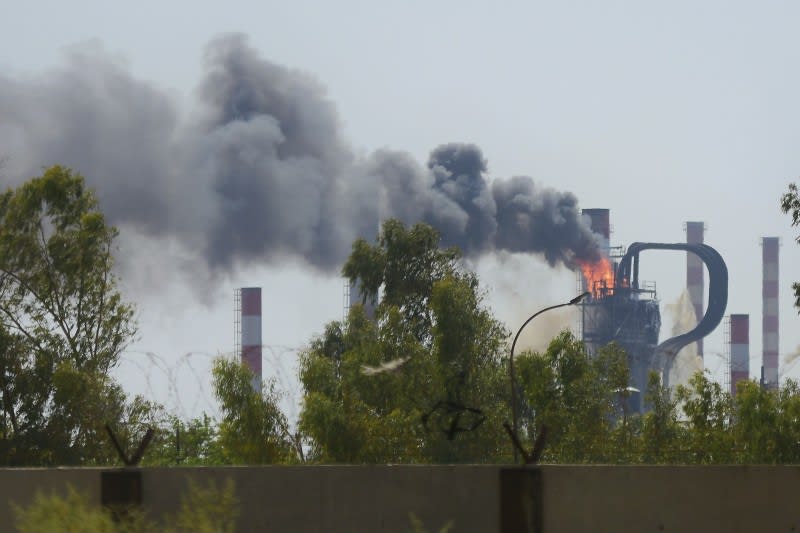Escalating Incidents in Iran Spark Speculation
A series of unexplained explosions and fires have been occurring in Iran for over two weeks, causing significant disruption across various sectors. These incidents have targeted oil refineries, residential buildings, a road near a major airport, and even a shoe factory. The events have raised concerns among the public and officials alike, as the causes remain unclear.
Publicly, Iranian authorities have attributed these incidents to aging infrastructure, gas leaks, or simple accidents. This explanation seems aimed at easing public anxiety following the country’s recent conflicts with Israel and the United States. However, private discussions among Iranian officials suggest a different perspective. Several high-ranking individuals, including a member of the Islamic Revolutionary Guards Corps, believe that many of these incidents are deliberate acts of sabotage by Israel. A European official with knowledge of the region has also expressed similar suspicions, though without offering direct evidence.
Iranian officials, who have spoken anonymously, reference Israel’s long history of covert operations within Iran. These operations have included explosions, assassinations, and psychological warfare. While Israel has not made any official comments on the matter, its intelligence agency, the Mossad, has indicated that its activities inside Iran will continue. Chief David Barnea of the Mossad stated, “We will be there, just as we have been up to now,” according to reports from the Jerusalem Post.
Despite these statements, Iranian officials are cautious about publicly accusing Israel. They fear that such an accusation could provoke a military response, especially given that Iran’s capabilities have been weakened by recent conflicts. However, the government’s explanations for the frequent blasts have not convinced many Iranians. Some citizens are openly questioning whether the war with Israel ever truly ended.
Public Reaction and Government Response
The public’s skepticism is growing, as the government’s attempts to downplay the incidents have not been effective. Many Iranians are concerned about the safety of their communities and the stability of the country. The lack of transparency from the government has only heightened these fears.
In addition to the physical damage caused by the explosions and fires, there is a growing sense of unease among the population. People are beginning to question the security of their daily lives and the effectiveness of the government in addressing these threats. This uncertainty has led to increased speculation about the involvement of external actors, particularly Israel.
The situation in Iran has drawn attention from international observers, who are closely monitoring the developments. The potential for further escalation remains a concern, as both sides continue to operate in a climate of tension and suspicion.
International Implications
The incidents in Iran have broader implications for regional stability. The possibility of Israeli involvement raises questions about the ongoing conflict between the two nations. It also highlights the complex web of relationships and tensions that exist in the Middle East.
As the situation unfolds, it is essential for all parties involved to engage in open and transparent dialogue. This would help to address the concerns of the public and prevent further escalation of hostilities. The international community also has a role to play in promoting peace and stability in the region.
In conclusion, the series of unexplained explosions and fires in Iran has sparked significant concern and speculation. While the government continues to attribute these incidents to technical failures, the public remains skeptical. The potential involvement of Israel adds another layer of complexity to the situation, underscoring the need for careful analysis and diplomatic efforts to ensure regional stability.







